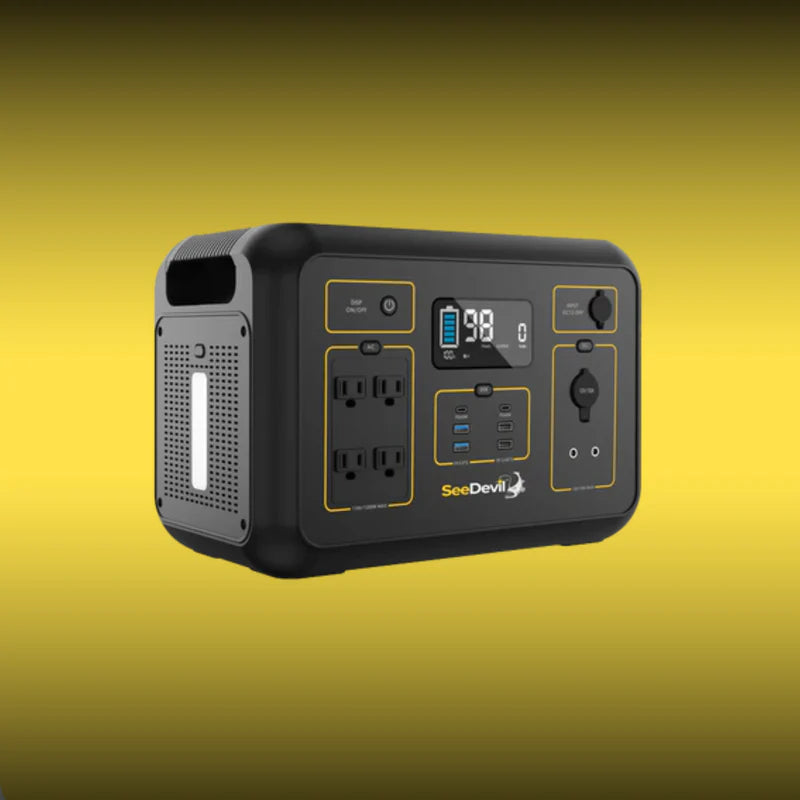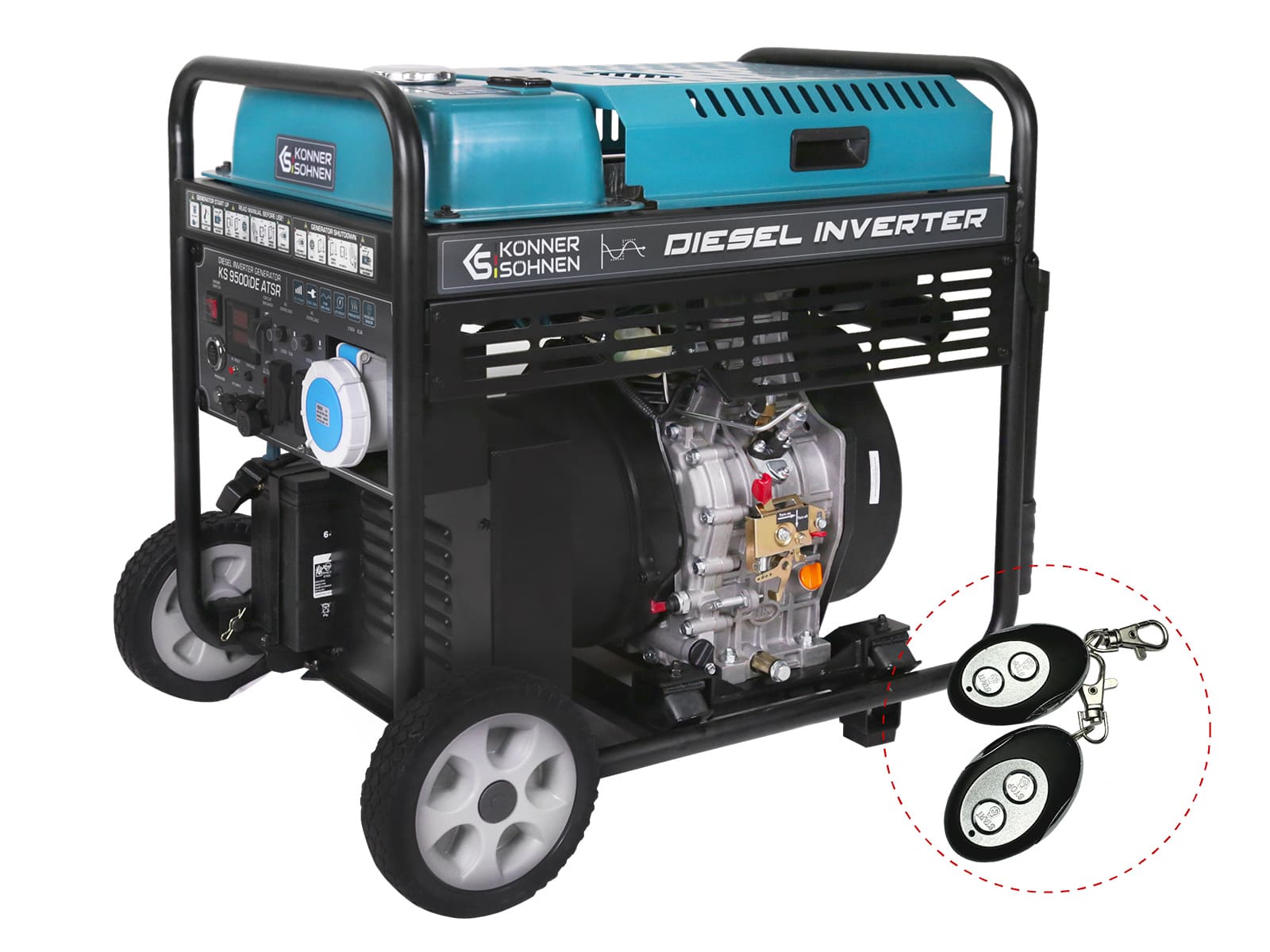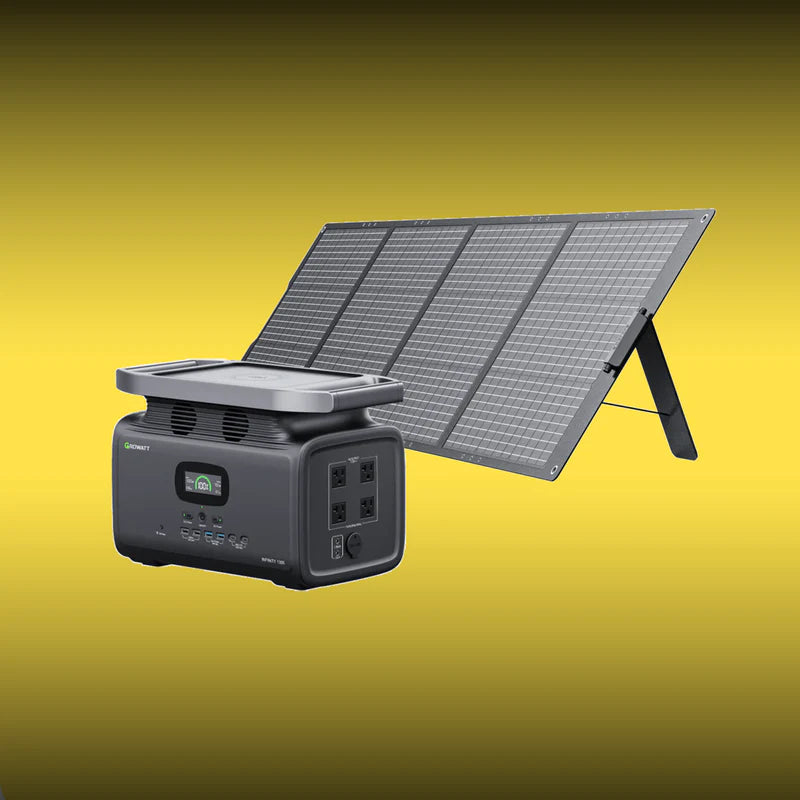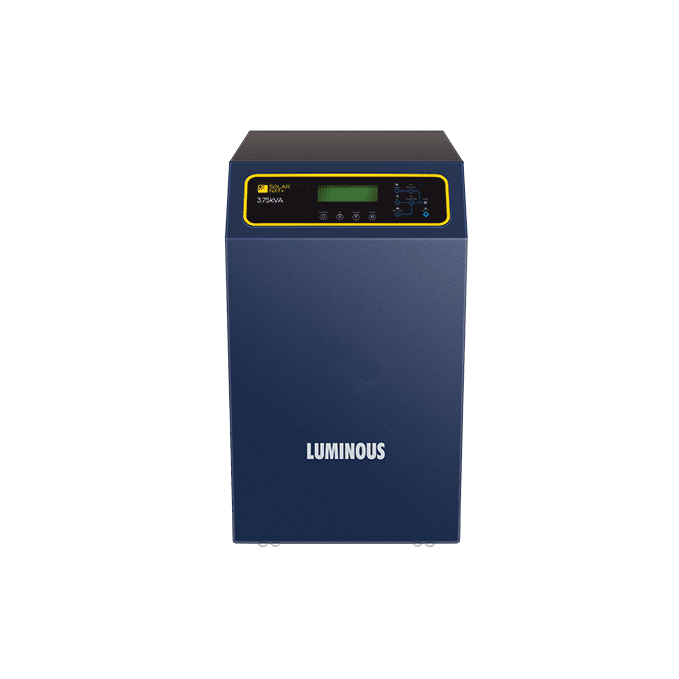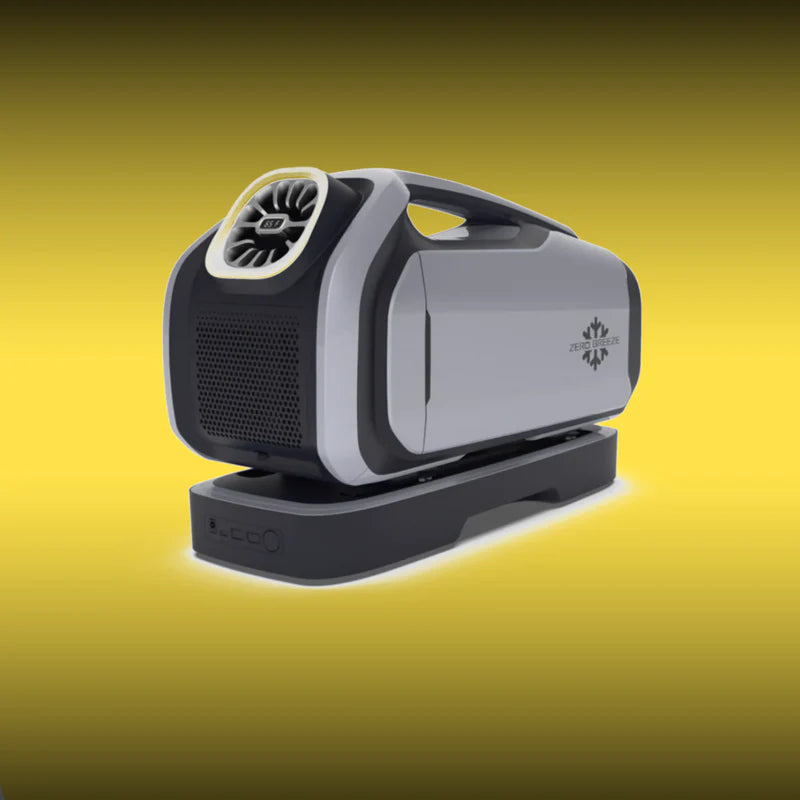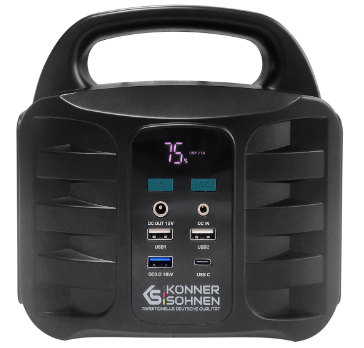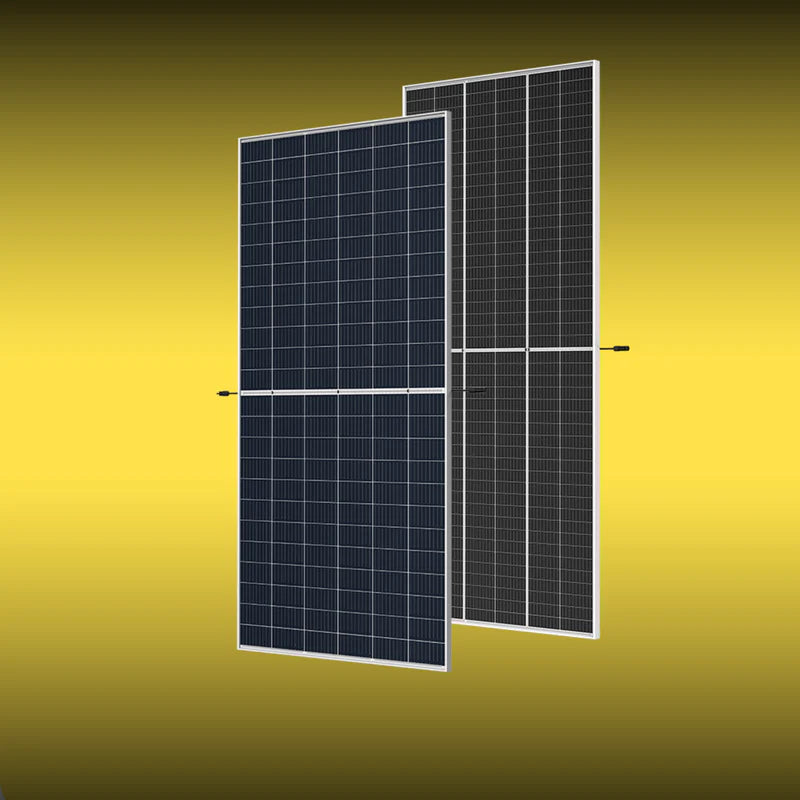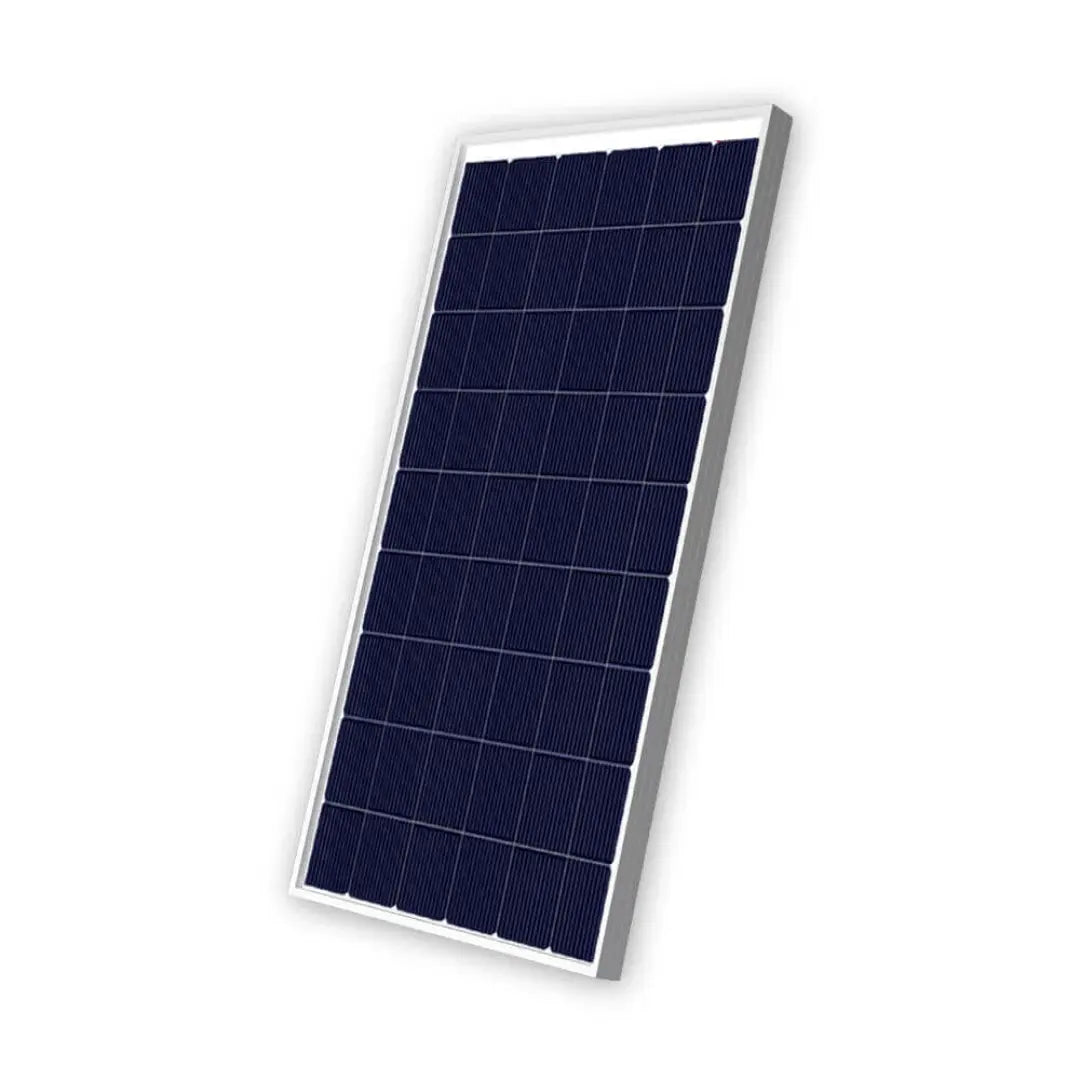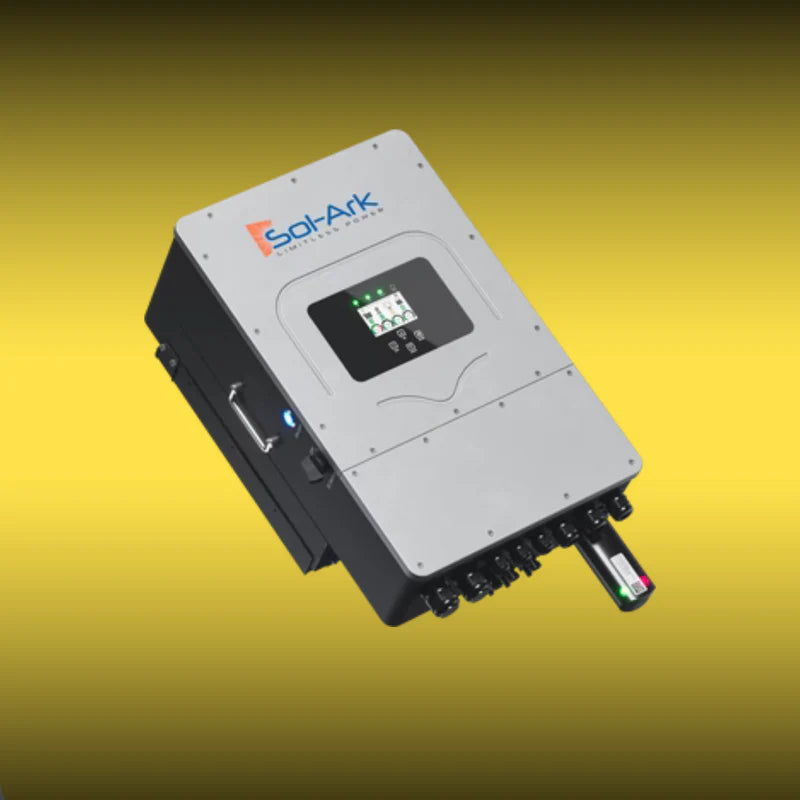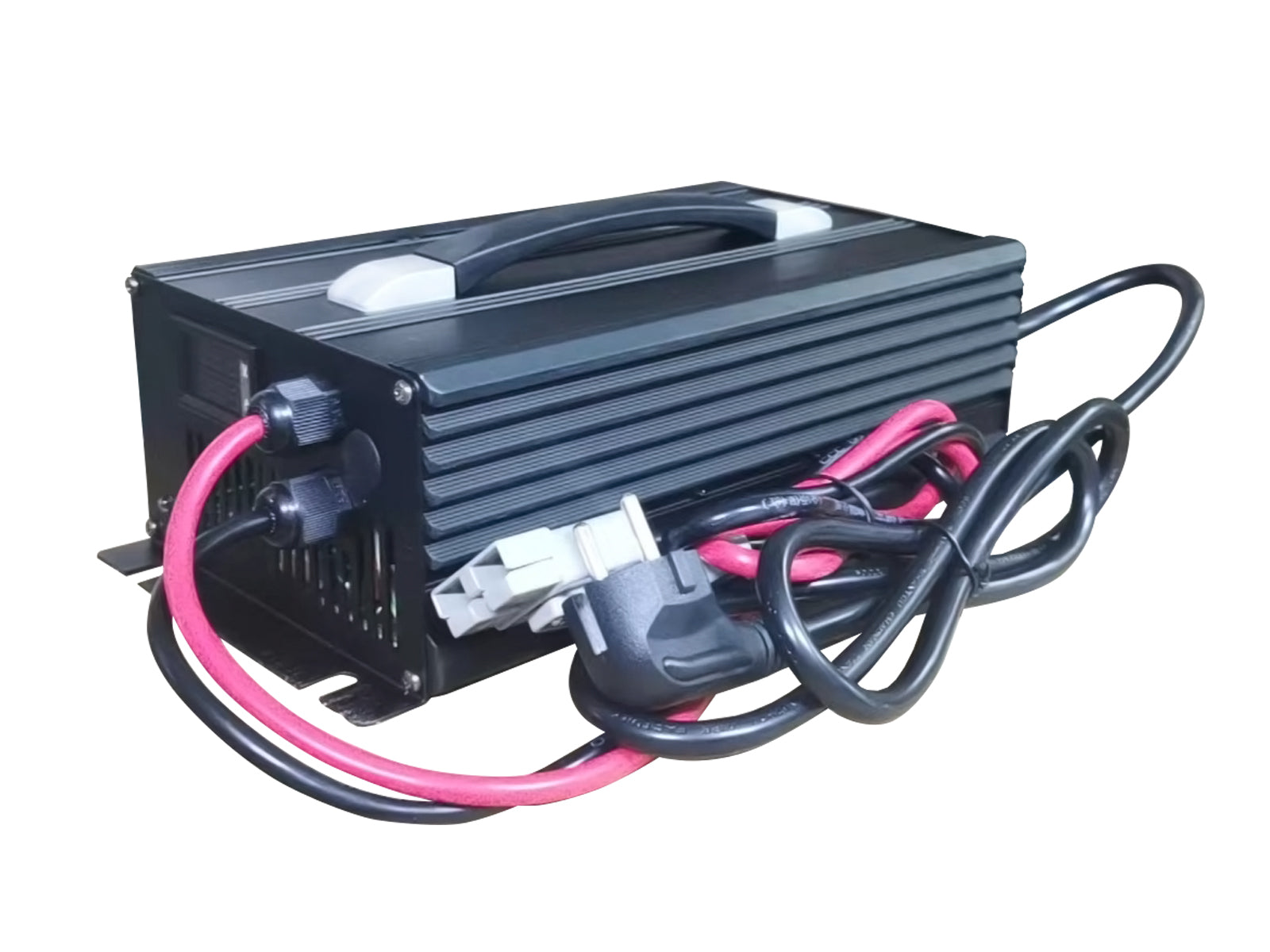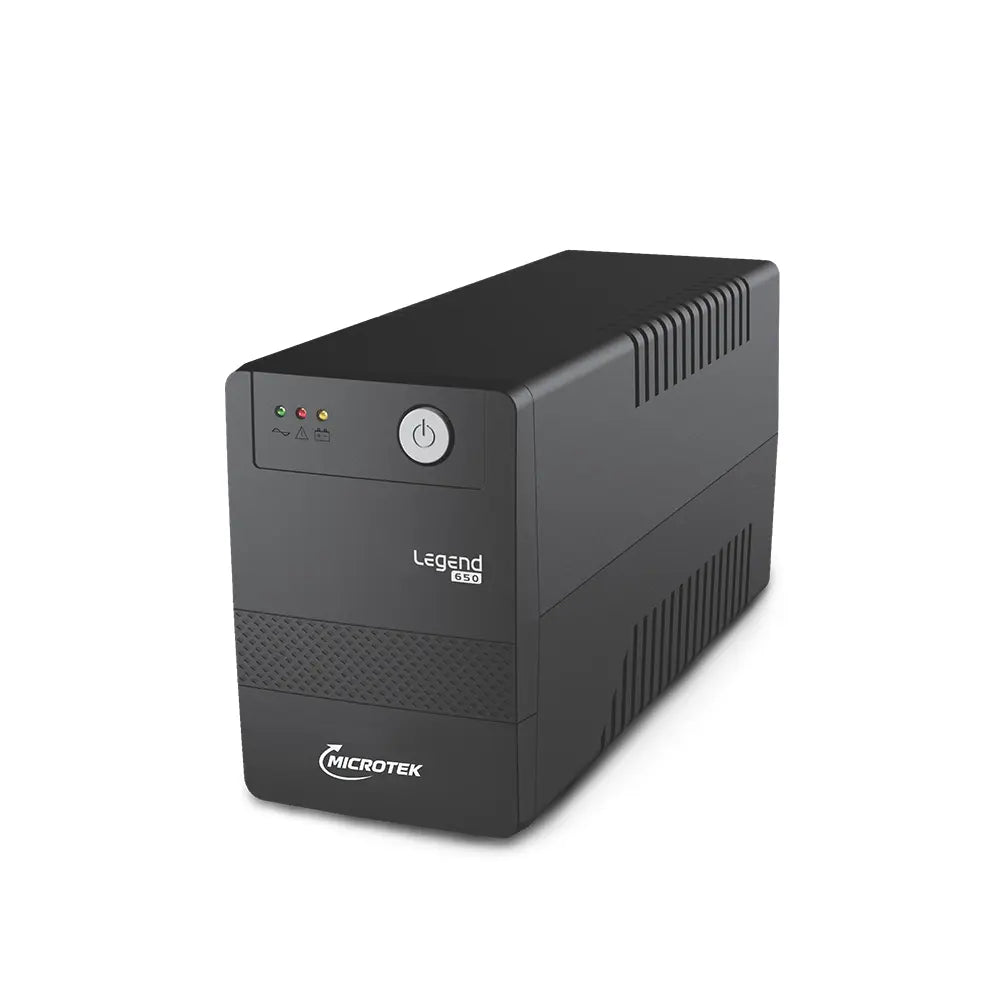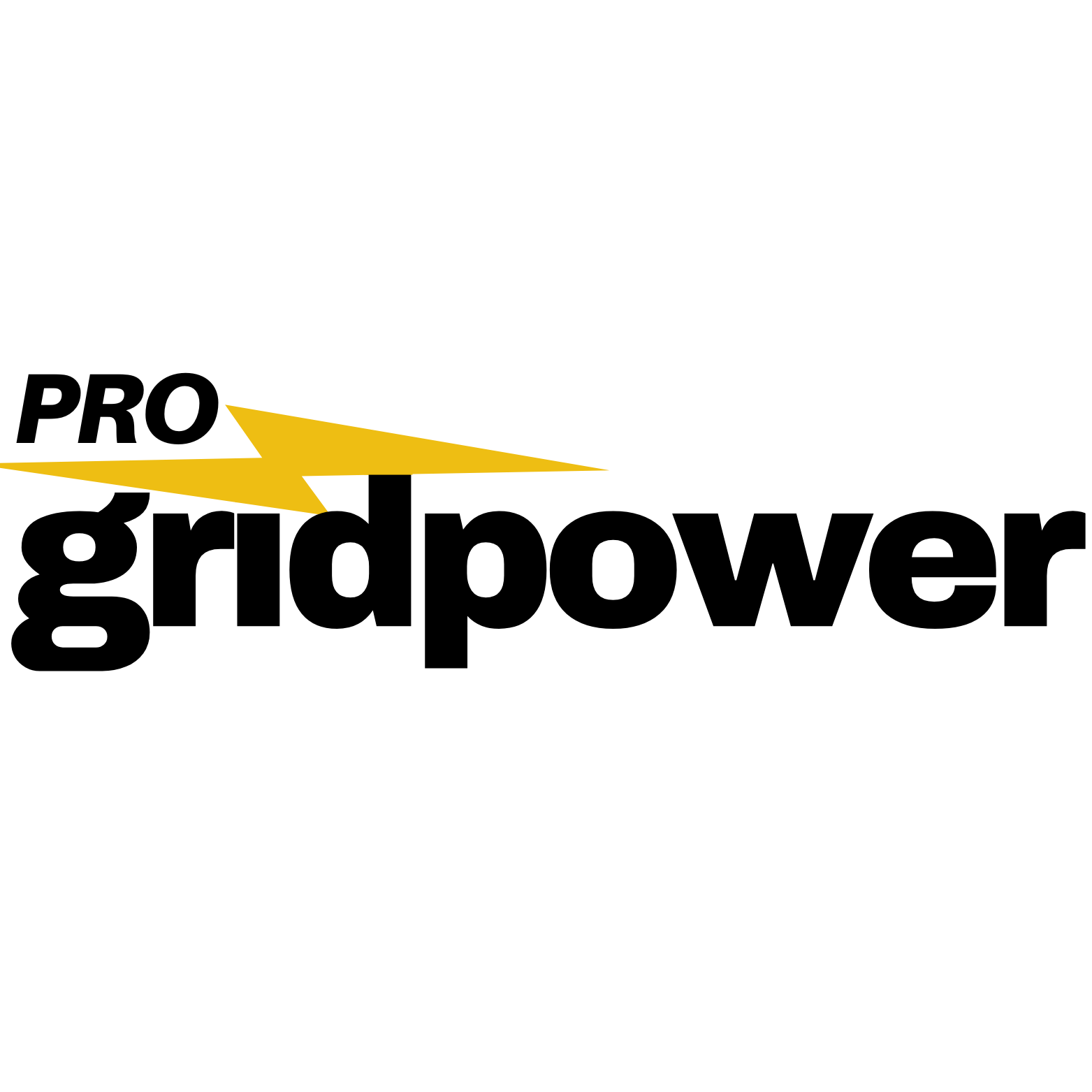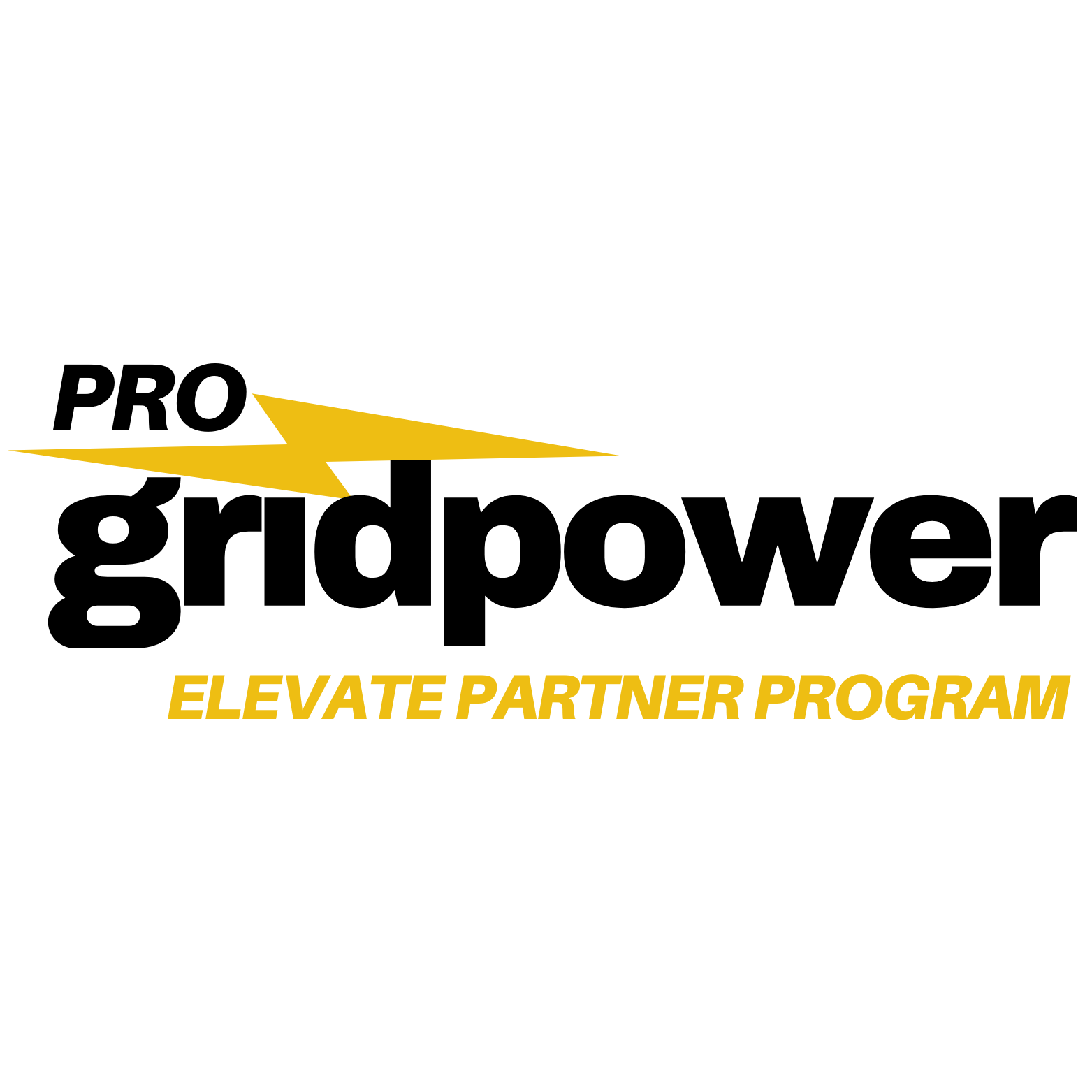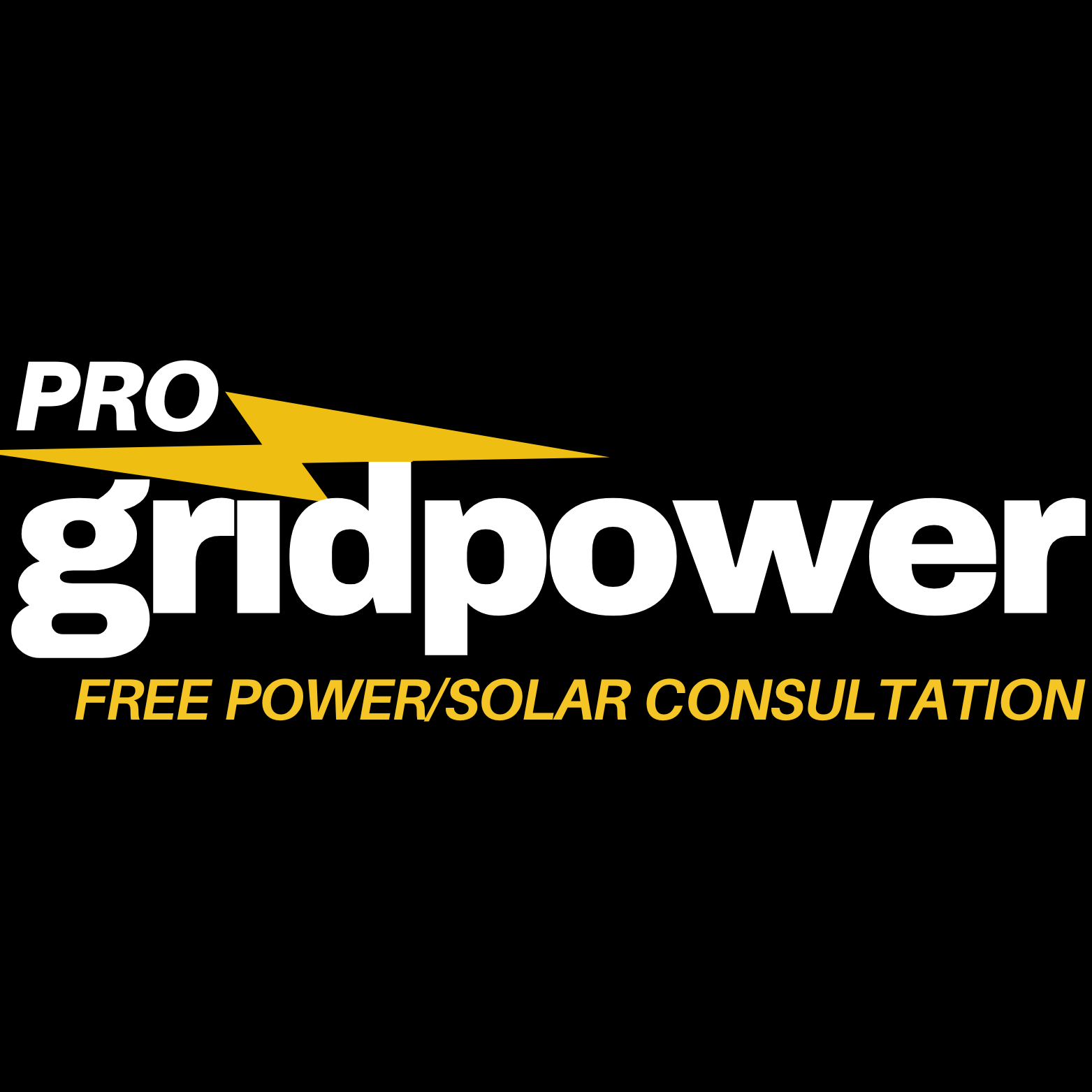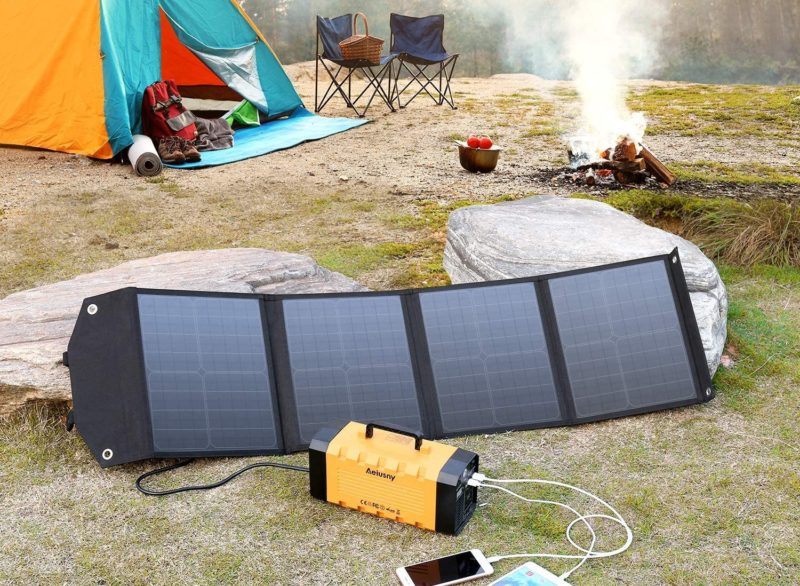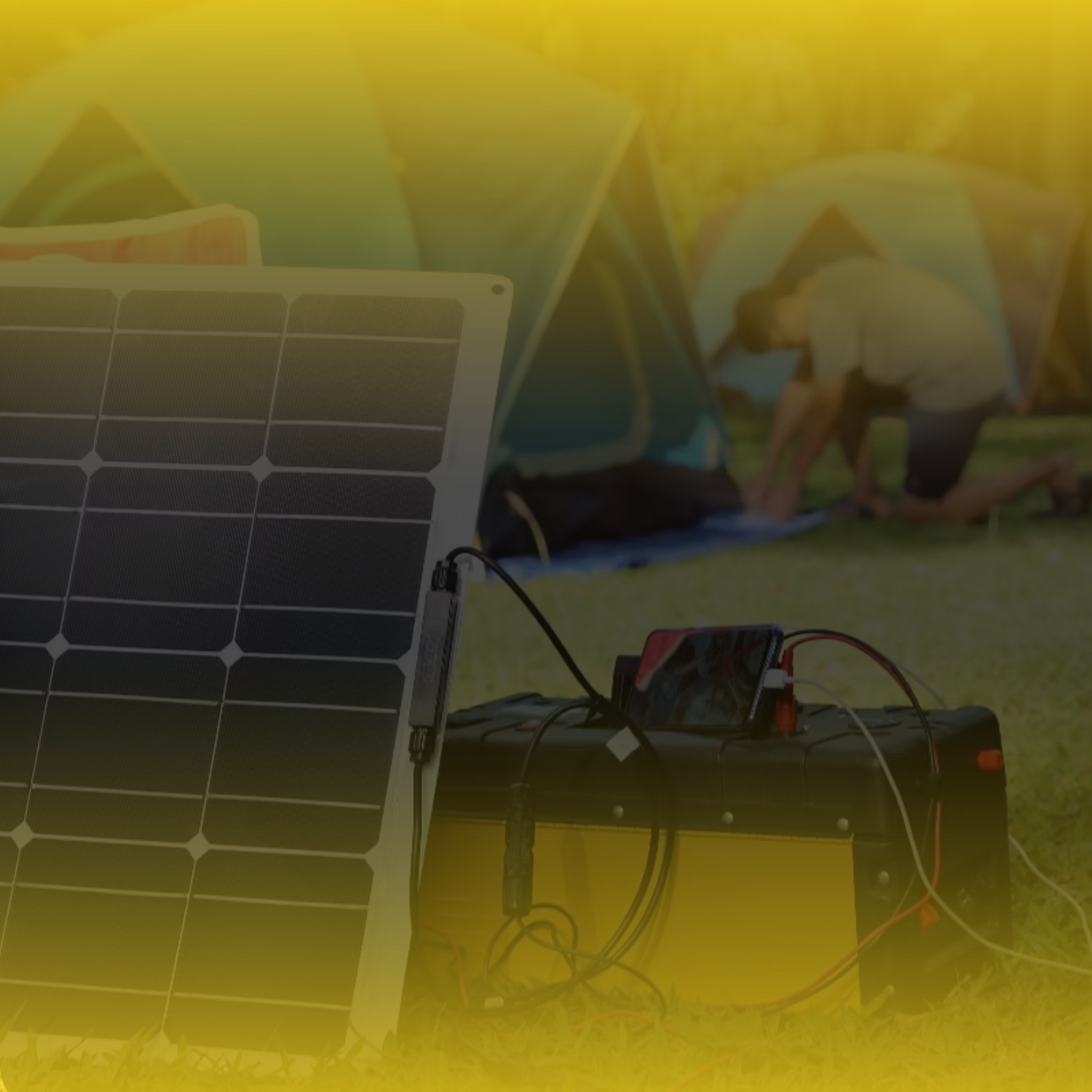Building an Off-Grid Energy System: Essential Solar and Power Equipment
With more people embracing off-grid living, having the right solar and power equipment is crucial for a sustainable, energy-independent lifestyle. Whether you're planning to power a remote cabin, RV, or simply want reliable backup energy, selecting the right equipment is key. Here's a guide to the essential solar and power gear you'll need for successful off-grid living.
1. Solar Panels: The Backbone of Your System
Solar panels form the foundation of any off-grid energy setup, converting sunlight into electricity. Here’s what to consider when choosing panels:
- Wattage: Determine your energy consumption needs and select panels accordingly. For powering homes, opt for 300W+ panels, while smaller panels (around 100W) are great for RVs, vans, or camping.
- Portability: If you're on the move—camping, traveling in an RV, or living a van-life—portable panels with foldable designs or lightweight frames are ideal.
- Efficiency: High-efficiency panels (18-22%) maximize energy production in limited spaces, ensuring consistent power in diverse conditions.
Pro Tip: Monocrystalline panels are a popular choice for off-grid systems due to their superior efficiency and compact size.
2. Power Stations: Portable Energy Storage and Access
Portable power stations are essential for off-grid living, offering flexibility and easy access to stored energy.
- Capacity (Wh): Choose a power station with sufficient watt-hour capacity to match your energy needs. For instance, a station with 500Wh can power small appliances like laptops or fans, while larger stations (1000Wh+) are better for refrigerators or multiple devices.
- Multiple Outputs: Ensure the station supports AC, USB, and DC outputs to charge or run various devices simultaneously.
- Solar Charging Capability: A power station with solar input ensures you can recharge it using solar panels, making it a cornerstone of sustainable, off-grid living.
Pro Tip: Look for models with expandable battery packs or high-speed charging options for added versatility.
3. Portable Generators: Reliable Backup Power
Generators are invaluable during low-sunlight days or when energy demands exceed your solar system's capacity.
- Fuel Type: Choose between solar, gas, propane, or diesel generators. Solar generators are eco-friendly and quieter, while fuel-based options provide power regardless of weather conditions.
- Power Output: Match the generator's output to your appliance needs. For sensitive electronics, an inverter generator is ideal due to its stable and clean energy output.
- Noise Level: For quiet environments, prioritize generators with noise-reduction technology, especially for camping or RV use.
Pro Tip: A hybrid system combining solar and fuel-based generators offers the best balance of sustainability and reliability.
4. Batteries: Store Energy for Future Use
A dependable battery bank is essential for storing solar energy and ensuring power availability during nighttime or cloudy weather.
- Capacity (Ah): Batteries with higher amp-hour ratings store more energy, extending your system’s runtime.
-
Battery Type:
- Lithium-ion Batteries: Lightweight, efficient, and long-lasting but come at a premium price.
- AGM Batteries: Affordable and durable but heavier and with a shorter lifespan.
- Expandability: Choose a system that allows you to add more batteries as your energy requirements grow.
Pro Tip: Pair lithium-ion batteries with a high-capacity solar array for an efficient, low-maintenance solution.
5. Inverters: Convert Energy for Appliance Use
Inverters are essential for converting the DC power generated by solar panels or stored in batteries into AC power used by household appliances.
- Pure Sine Wave: Ideal for sensitive electronics like laptops, medical devices, or audio equipment, as they deliver cleaner and more stable power.
- Power Capacity: Select an inverter with a capacity that exceeds the combined wattage of your appliances, accounting for the initial surge power required by devices like refrigerators or power tools.
Pro Tip: Look for inverters with integrated safety features, such as overload protection, to ensure system reliability.
6. Accessories: Supporting Components for Optimal Performance
No off-grid system is complete without high-quality accessories that ensure safe, efficient, and long-lasting performance:
- Charge Controllers: Use MPPT (Maximum Power Point Tracking) controllers for optimal energy capture and battery life. These are more efficient than traditional PWM controllers.
- Cabling and Mounting Kits: Invest in durable, weather-resistant cables and secure mounting systems to withstand the elements and ensure proper installation.
Pro Tip: Use high-gauge cables to minimize energy loss over long distances, especially for larger systems.
Conclusion: Achieving Off-Grid Energy Independence
Investing in the right solar and power equipment is the foundation of any successful off-grid energy system. From solar panels and batteries to power stations and generators, each component plays a crucial role in ensuring energy independence and sustainability.
By carefully selecting your equipment and planning for future expandability, you can enjoy the freedom and reliability of off-grid living. Whether you're powering a remote cabin, an RV, or simply want a backup solution for emergencies, the right gear will help you harness the power of renewable energy.
Ready to start your off-grid journey? Explore our store for high-quality solar and power equipment designed to meet your unique energy needs.

